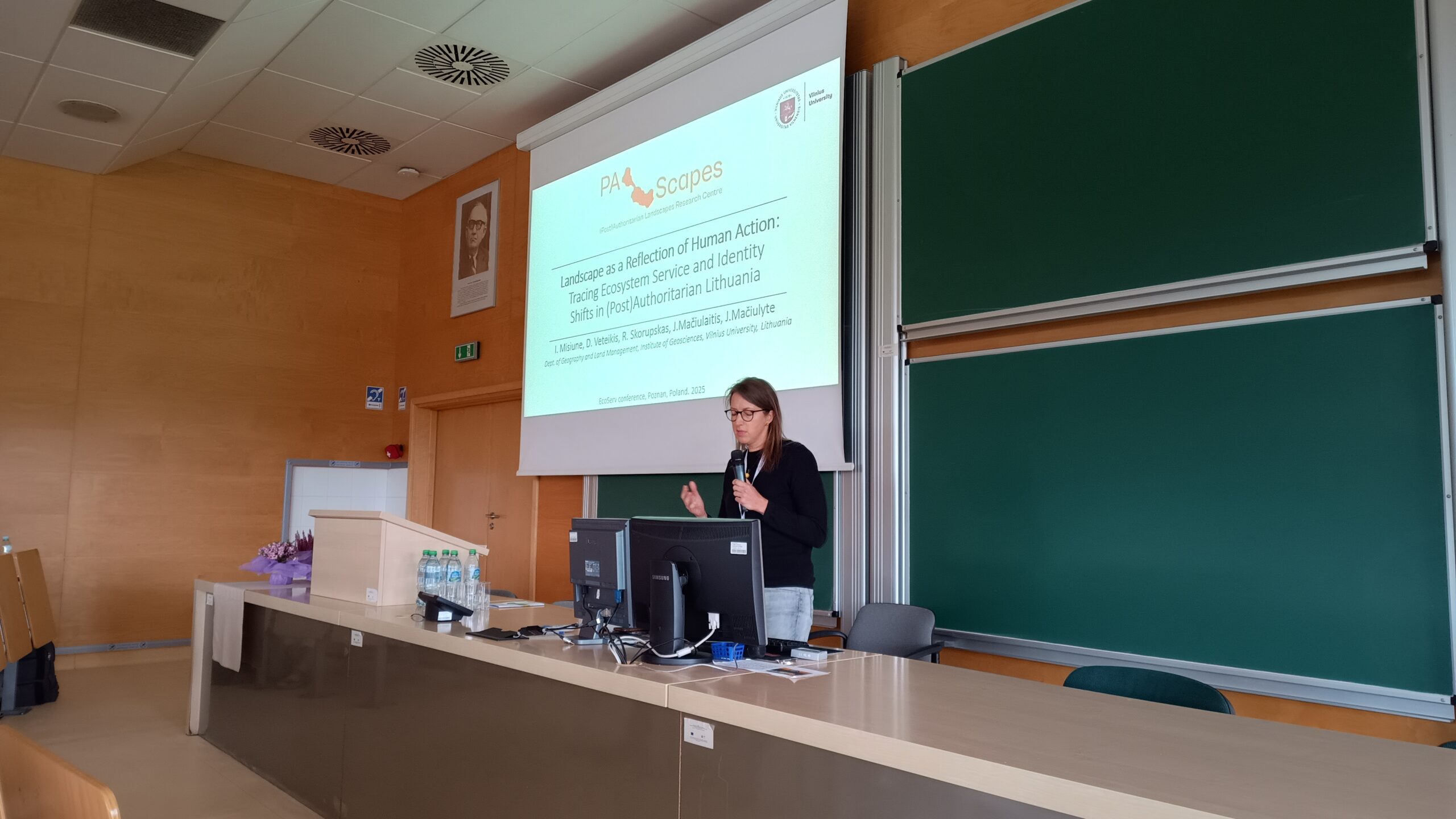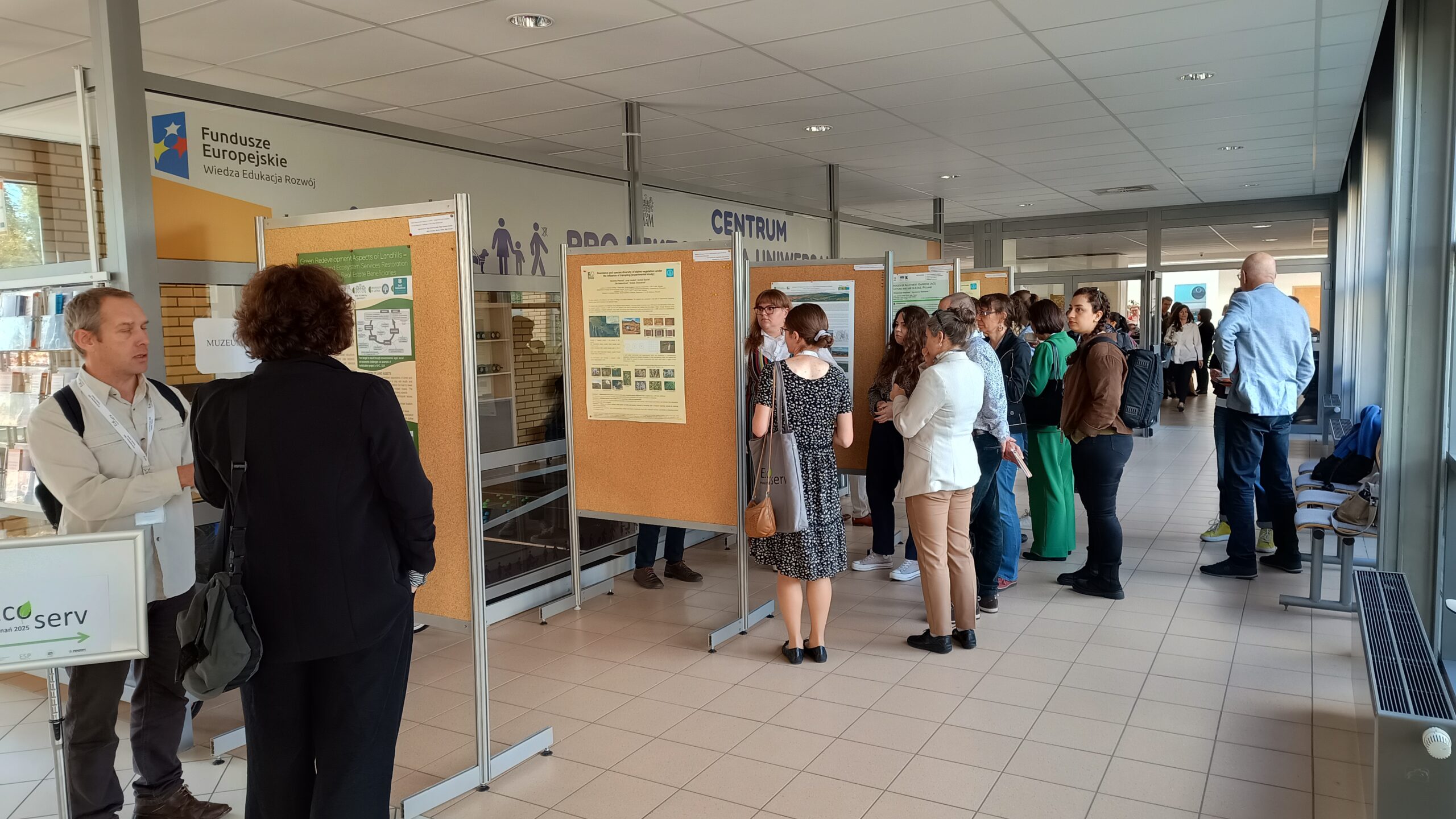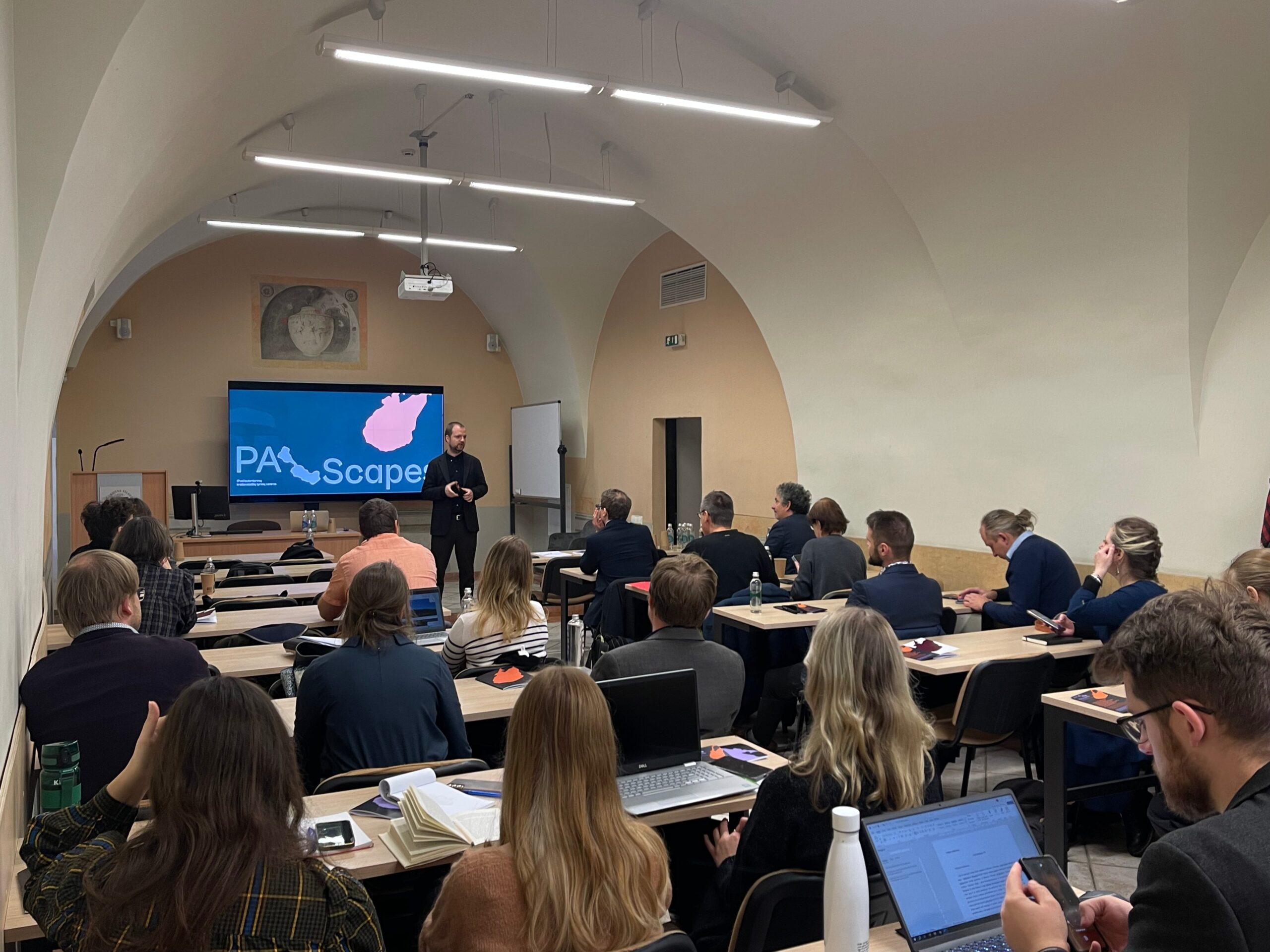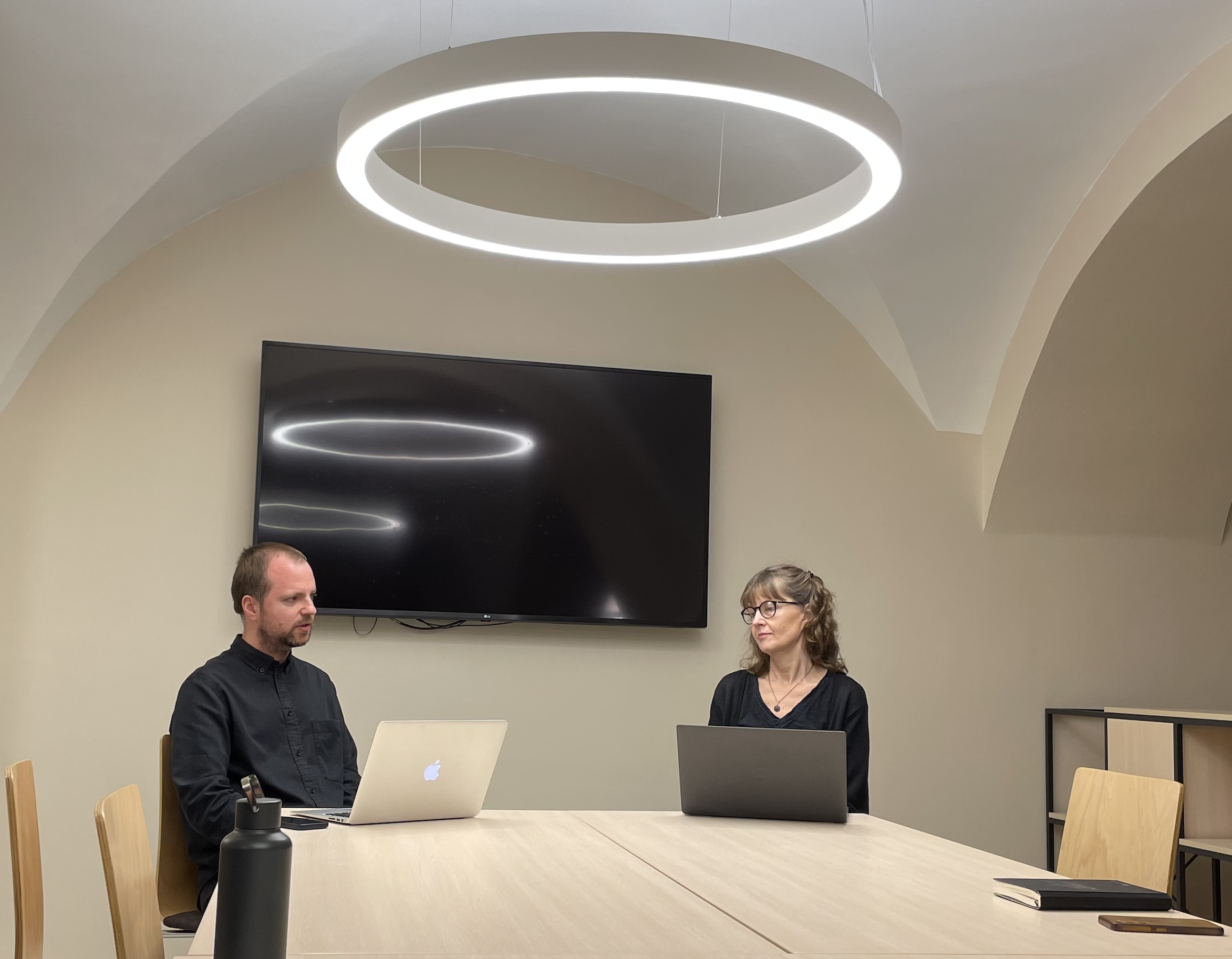The 8th ECOSERV Conference was recently held in Poland under the theme “Ecosystem Services in a Transdisciplinary Approach”. It is one of the most recognized scientific events in this part of Europe, bringing together researchers and practitioners who explore the multiple ways human-nature relations shape the provision and transformation of ecosystem services.
This year Assoc. Prof. Dr. Ieva Misiūnė was invited as a key speaker. She presented findings from a study carried out together with colleagues Prof. Darijus Veteikis, Assoc. Prof. Dr. Ričardas Skorupskas, PhD student Julius Mačiulaitis and Prof. Jurgita Mačiulytė entitled “Landscape as a Reflection of Human Action: Tracing Ecosystem Service and Identity Shifts in (Post)Authoritarian Lithuania.”
In her talk, Dr. Misiūnė introduced the process and scale of Soviet-era land reclamation, as well as the methodology and preliminary results of evaluating landscape transformations in the selected case-study areas – the Skaistgirys lowlands and the Suginčiai uplands.
The research showed that in the lowlands, Soviet drainage projects erased the natural structure of wetlands and meadows, turning the landscape into a system of large uniform fields. As a result, habitat diversity decreased and regulating ecosystem services such as water retention and biodiversity maintenance weakened. The resettlement of farmsteads during this period also led to a long-term decline in population in these areas.
In the uplands, by contrast, only part of the land was affected by drainage and resettlement. Moreover, after 1990, the abandonment of farmland allowed the natural regeneration of small woodlands and meadows, making the landscape more mosaic-like. The persistence of local residents and their activities created conditions for more diverse ecosystem services – recreation, pollinator habitats, and carbon sequestration.
These geographical differences revealed that the intensity and nature of human impact determine not only the trajectory of landscape change but also the direction of ecosystem services and human-nature co-production. Future research will help to identify under what conditions such transformations can be considered as a basis for sustainable coexistence.




